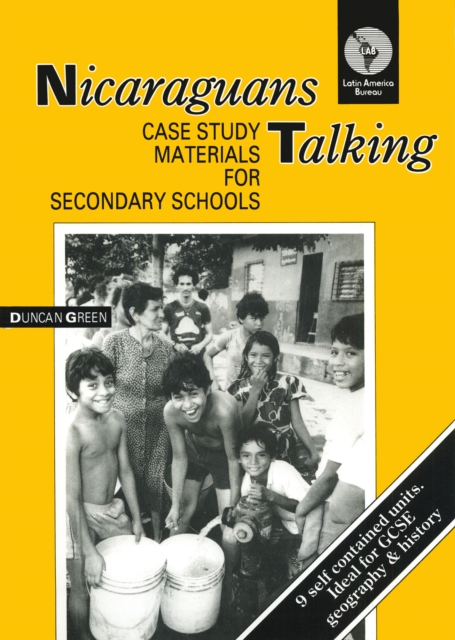
Nicaraguans Talking PDF
by Duncan Green
Description
Nicaraguans Talking uses Nicaragua as a case study raising a wide range of development and social justice issues.
Since the 1979 revolution, a large proportion of the population has become involved in the search for a way out of the development trap and the Somoza dictatorship's legacy of economic and social injustice.
Nicaragua has become a laboratory where many fascinating social experiments are taking place, and everyone wants to talk about them!Nicaraguans Talking allows students to look at Nicaragua through the words of its people.
Extracts from over 90 interviews conducted by the author in late 1986 are supplemented by other source materials including photos, cartoons, statistical information and poetry. The book progresses largely through active learning activities, such as creative writing, investigation, role plays and group discussion.
Wherever relevant, students are asked to compare Nicaragua with their own experience in Britain.
Care has been taken to ensure balanced representation of men and women throughout, with activities on women's roles both in Nicaragua and Britain. Teachers are not expected to use the whole course, but to dip into different sections.
For that reason the nine sections are self-contained, with word-boxes and other information accompanying the text to minimise photocopying.
All material is free of copyright for classroom use.
Nicaraguans Talking is written and designed principally for mixed ability work with 14-16 year olds.ln England and Wales, it has special relevance to GCSE subject areas in Geography, Modern History, Integrated Humanities, Religious Studies and Social Studies.
Under the National Curriculum, it is also relevant to cross-curricular work in personal/social education, political/international awareness, interdependence and economic awareness.
Information
-
Download - Immediately Available
- Format:PDF
- Publisher:Practical Action Publishing
- Publication Date:01/01/1990
- Category:
- ISBN:9781909013322
Information
-
Download - Immediately Available
- Format:PDF
- Publisher:Practical Action Publishing
- Publication Date:01/01/1990
- Category:
- ISBN:9781909013322






